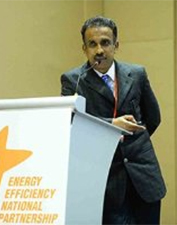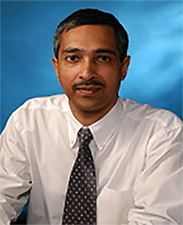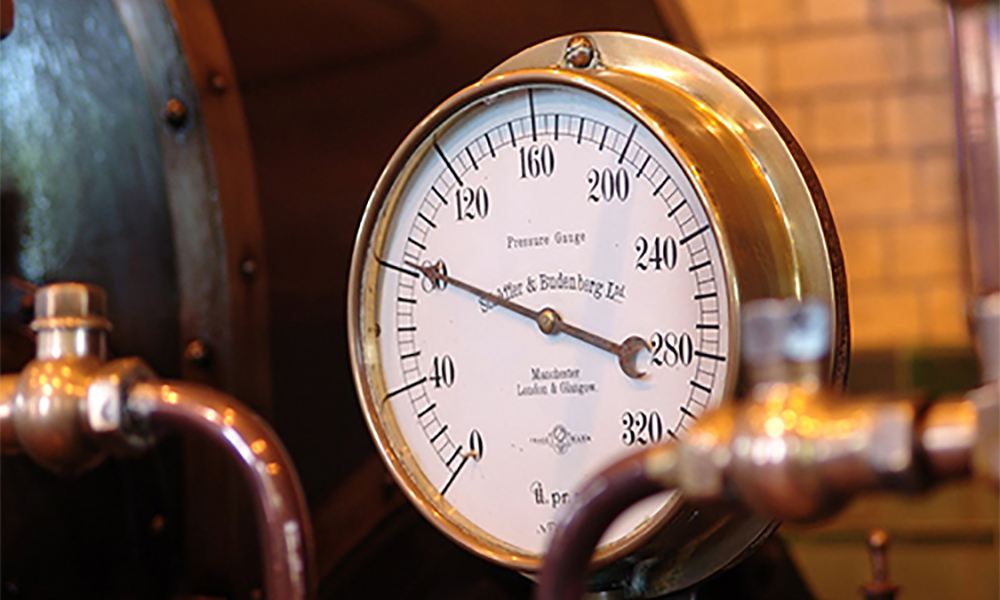- Details
- Written by Super User
- Category: Uncategorised
- Hits: 1174
SCEM-P: Steam & Compressed Air Systems
Next Course Date: 16 - 18 November 2020
|
|
Administrative Details |
Time: 9am - 6pm
Venue: 180 Kitchener Road, #06-10 City Square Mall Singapore 208539; Singapore Sustainability Academy
Contact: +65 - 6338 8578
Email: This email address is being protected from spambots. You need JavaScript enabled to view it.
|
|
Course Summary |
Steam and compressed air systems consume significant energy in industrial plants. In addition, there are many opportunities to recover waste heat from various industrial processes. Therefore, energy efficient design and appropriate operation strategies for
these systems have the potential to significantly reduce energy consumption in industrial facilities. Major topics discussed include the function of the various components in steam and compressed air systems, heat and mass transfer analysis, evaluation of system performance, potential for heat recovery, influence of different variables on energy optimization, energy efficient design, operation and control strategies, sustainable practices, selection and arrangement of heat recovery devices, operations and maintenance.
|
|
Course Objective |
Participants will be equipped with the understanding of:
- Understand the functions and components of compressed air and steam systems
- Analyse energy performance characteristics and identify potential energy saving opportunities in compressed air and steam systems
- Select heat recovery devices and analyse heat transfer performance
- Operate the above systems in an energy efficient manner
|
|
Target Audience |
- Energy Managers
- Management Representatives
- Facilities/Energy Managers, Executives and Supervisors
|
|
Speaker |

Dr. Jahangeer K. Abdul Halim graduated with a Master of Science (M.Sc.) in Mechanical Engineering from National University of Singapore in 1998. He was awarded a Research Scholarship by the National University of Singapore (NUS) in 1999 to undertake a
research project on solar energy and was awarded a Master of Engineering (M.Eng.) degree in 2002.

Dr. Lal Jayamaha is the author of the book “Energy Efficient Building Systems” published by McGraw-Hill, USA and the founder of LJ Energy Pte Ltd which is one of the leading ESCOs in Singapore
Reference Materials
- Details
- Written by Super User
- Category: Uncategorised
- Hits: 1326
SCEM-P: Building Envelope and Lighting Systems

Next Course Date: 14 - 16 June 2021
|
|
Details of SCEM Programme |
Time: 9am - 6pm
Venue: 180 Kitchener Road, #06-10 City Square Mall Singapore 208539; Singapore Sustainability Academy
Contact: +65 - 6338 8578
Email: This email address is being protected from spambots. You need JavaScript enabled to view it.
|
|
Summary of SCEM Programme |
The façade together with the rest of the building envelope and roof contribute most to the solar heat gain of a building. Energy managers should be well-equipped with knowledge and technical skills to minimise these loads. These skills and ideas will be highlighted and taught at our Singapore Certified Energy Manager (SCEM) programme. Possession of a good knowledge of lighting products, systems, design & methods of integrating supplementary daylight will help energy managers to save on lighting and thermal loads.
|
|
Objectives of SCEM Course |
Participants will be equipped with a better understanding of:
- Develop a ‘single skin’ concept for façade design to satisfy different issues arising from various types of curtain walls and their components
- Evaluate inputs of Façade specialists and manage critical events during planning & installation
- Define and calculate the ETTV and RETV of Wall, Roof and Fenestration of a building
- Introduce Daylighting design via physical and computer simulations to meet requirements of Singapore Standards, Green Mark & LEED
- Survey the existing lighting of a building with the use of a pre-designed template
- Analyse the current lighting components and devise possible changes & retrofits with state-of-the-art lighting products for greater energy-efficiency
- Evaluate the most appropriate new or retrofit solution based on initial cost as well as life-cycle economics
- Integrate the above management practice into the business practice of clients and their own organisations
|
|
Target Audience |
- Energy Managers
- Management Representatives
- Facilities/Energy Managers, Executives and Supervisors
|
|
Speaker |
K Seshadri (SESH) is CEO of Gritti Consulting Pte Ltd and Chairman of Singapore Standards Technical Committee (IEC 34) for Lamps & Related Equipment and Codes of practice (for Emergency lighting and Indoor-Outdoor workplaces). He will be sharing his insight at the SCEM course hosted by SEAS.
Kelvin Kan is a registered Architect in the UK and Singapore and practised in both countries for more than 10 years. He is another speaker who will be sharing his thoughts about lighting systems at our SCEM course. Kelvin's strength is his ability to visualise and provide design concepts and solutions for unusual requirements including integration of LED lights for all different facade systems.

Our final SCEM speaker is Alvin Cheong. He has 8 years of experience as an ESD, acoustic and vibration engineer, providing designing and prediction consultancy as well as troubleshooting services to various industries.
Reference Materials








